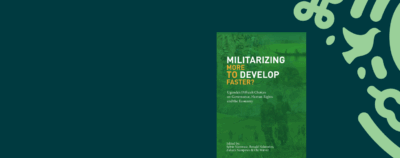Here I will argue that Thomas Pfau’s presentation of modernity in Minding the Modern fails to incorporate both the sociopolitical dimensions of modernity’s emergence and its positive aspects. He sees modernity as the home of the “modern subject” of the Western world, or the “quintessentially modern, solitary individual” in his “palpable melancholy,” both “altogether adrift” and without “interpersonal relations.” Stanley Hauerwas captures the sense of the book in his endorsement: “Pfau locates the philosophical developments that contributed to the agony of the modern mind. Moreover, he helps us see why many who exemplify that intellectual stance do not recognize their own despair.” Pfau thus offers a challenge to those whom he sometimes calls the “modern apologists of secular, liberal, Enlightenment society.”
Latest posts
Pope Francis reaffirms belief in evolution
by Wei ZhuAddressing the plenary assembly of the Pontifical Academy of Sciences on October 27, Pope Francis stated that not only are the Big Bang and evolution consistent with God and creation, but in fact require a divine presence.
Minding the other modernities
by Elizabeth PritchardLet me start with a confession. I am not particularly keen on stories of modernity in which “modernity” figures as a character and in which the plot—surprise—entails a “fall” or “break.” Thomas Pfau’s Minding the Modern is a long telling of this tale, containing some wonderfully astute scenes and bringing on stage two of my favorite thinkers, John Locke and Theodor Adorno (the first appearing as a culprit and the second as an ally). I am not unmoved by Pfau’s convictions and arguments that what appears to be human advancement is actually decline (325). Nonetheless, I find myself appreciating the worldliness and ostentatiousness of Adorno’s miniaturized version of this story: “No universal history leads from savagery to humanitarianism, but there is one leading from the slingshot to the megaton bomb.” Pfau frames his argument as an exploration of and possible solution to the crisis in the humanities. For him, that crisis is not the devaluation of humanistic study in a context of the corporatization of higher education and intense competition for scarce and unstable employment. Rather, it is his sense that we are suffering through a case of amnesia.
CFP: Religion, Gender and Body Politics
by Wei ZhuThe "Interdisciplinary Innovations in the Study of Religion and Gender: Postcolonial, Post-secular and Queer Perspectives" project has announced its final conference, initiated and coordinated by Anne-Marie Korte (Utrecht University) and Adriaan van Klinken (University of Leeds).
Ancient questions for modern answers
by Mark AlznauerThe central contrast in Thomas Pfau’s rich and rewarding book, Minding the Modern, is between two radically opposed views of human agency. The first is the “classical view of human agency” that was first formulated by Plato and Aristotle and which was given a particularly powerful expression in the works of St. Thomas Aquinas. According to this view, to do something is to deliberately act on some conception of the good; the telos of agency is reached only by our conscious participation in the permanent and rational order of things. The second and opposing view of human agency, which Pfau describes as the modern or naturalistic view, goes back to William of Ockham but was given its most influential articulation by Thomas Hobbes and David Hume. According to this view, human action is just behavior that is caused by a desire and accompanied by some thought about how to realize that desire in the world.
Futures of the American Religious Past
by Wei ZhuOn January 3, 2015, as part of the winter meeting of American Society for Church History, four interlocutors will speak on TIF contributor John Lardas Modern's book Secularism in Antebellum America, and Mark Noll's book America's God, with comments from both authors.













